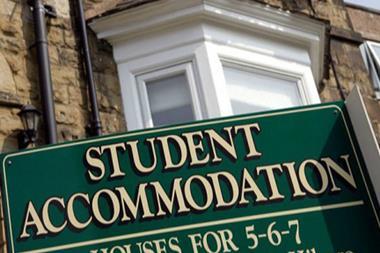As UK continues to deal with Brexit and its uncertainties, Germany has gained popularity among real estate investors.
According to BrickVest’s fourth quarter commercial property investment barometer, 33% of professional real estate investors have suggested that Germany is their preferred region. This compares with UK’s 27% during the same period.
This is the first time that Germany has been chosen as the number one region and ahead of the UK, the online real estate investment platform said, adding that it expects the trend to continue throughout 2018.
The research, which polled 3,500 professional real estate investors, also revealed that UK, French, German and US investors are now less favourable towards the UK than 12 months ago.
Emmanuel Lumineau, CEO at BrickVest, said: “Our latest barometer reveals that Germany has overtaken the UK as the location of choice to invest in commercial real estate.
“Investor risk appetite continues to rise as commercial real estate offers opportunities, especially in the form of debt-like investments which offer good risk-adjusted returns in a volatile market environment.”
Germany is becoming more fashionable among international real estate investors and will need to be ready to meet demand, according to the founder and chief executive of JLL’s German residential partner, Zabel Property.
Thomas Zabel said “a little change in London can result in a huge change in cities like Frankfurt”. He added: “Berlin and Frankfurt can benefit from just a small amount of relocation.”
Investors are still interested in UK real estate Zabel said. “We are talking to the same clients worldwide. All of our clients have bought in London would do it again,” he said.
“None of them have said no to London because of Brexit. Yes, there was a pause after the Brexit vote, but clients do not feel threatened by Brexit.
“We now have a second strong market in Europe. Germany is booming, while London will continue to be strong.”
For the first nine months of 2017, internal analysis by Engel & Völkers Investment Consulting and Engel & Völkers Commercial have revealed that throughout Germany, investors are currently paying an average premium of 1.6 times the annual basic rent to acquire a residential portfolio.
Engel & Völkers, which analysed 600 transactions – individual and portfolio – with a transaction volume of €2.2bn, revealed that the “residential property market is now a sellers’ market and residential portfolios a very scarce commodity”.
Kai Wolfram, managing director of Engel & Völkers Investment Consulting, said: “Because the investment pressure is so high, institutional investors are prepared to pay premiums for large investment volumes. That was not yet the case two to three years ago.”
The population of Frankfurt is 700,000, roughly the same amount of people working in London’s financial and banking industry, Zabel said.
“Even if – worse case – 10% of London financial sector employees left, who’s to say how many would go to Dublin, Paris or Frankfurt? Let’s say a third,” he said.
“Right now, the city of Frankfurt would not have enough space to deliver the offices and apartments for all these people that – worse case for London, best case for Frankfurt – would need.”
Frankfurt needs five years to absorb the demand and is not prepared, because speculative development does not exist in Germany, Zabel said.
According to Optimum Asset Management, Berlin, the German capital still offers excellent value provided a proactive approach is taken.
The boutique real estate investor with €1.5bn in assets under management, and an early entrant to the Berlin property market in 2006, said the city has changed considerably in recent years, but remains one of the most compelling market opportunities and appealing cities in Germany.
”Berlin is booming and offers great value to businesses. It is one of Europe’s most dynamic destinations for tech companies,” Optimum said.
“The city is also benefiting from growth in tourism and the continuing transfer of government ministries from other parts of Germany.
“Residential prices have been rising but remain good value compared to other major capitals such as London and Paris where prices per square metre are five or more times higher.”












